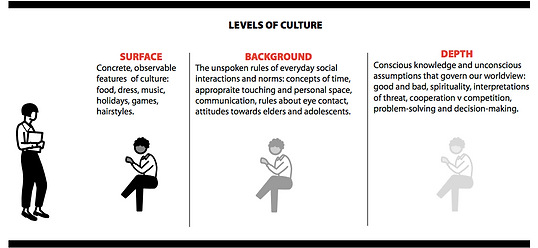FREE RESOURCES
RECOMMENDED READING

RELATIONSHIPS
Teach about Relationships
Use the Jigsaw Method to organise groups to be experts on topics relating to relationships. There is plan, graphic to guide grouping and research excerpts.
-
LESSON SEQUENCE for JIGSAW METHOD COMING SOON
-
THE JIGSAW METHOD: HOW IT WORKS DIAGRAM COMING SOON
-
RESEARCH EXCERPTS COMING SOON



MEMORY
Summary of Memory Classroom Strategies
Click below for Planning with Memory in Mind and High Impact Strategies
-
QUESTION, DRAW, EXPLAIN, LABEL - is HERE
-
ELABORATION Pages from 189 to 191 are HERE
-
THE FORGETTING CURVE is HERE
MINDSET
Introduce Metacognition
Teachers should explicitly teach metacognitive regulation to children, model and practise in context.
-
HOW TO INTRODUCE METACOGNITION
-
MODEL TEACH PRACTISE CONNECT
Learning – General
Coe, R., Aloisi, C., Higgins, S. and Major, L. E. (2014) What makes great teaching? Review of the underpinning research. London: Sutton Trust.
Deans for Impact (2015) The science of learning. Austin, TX: Deans for Impact.
Rosenshine, B. (2012) ‘Principles of instruction: research-based strategies that all teachers should know’, American Educator 36 (1) pp. 12–19, 39.
Neuroteach: Brain Science and the Future of Education by Glenn Whitman and Ian Kelleher.
Relationships
Australian Society of Evidence Based Teaching ‘What everyone needs to know about high-performance, teacher student relationships’
Francis, B., Taylor, B., Hodgen, J., Tereshchenko, A. and Archer, L. (2018) Dos and don’ts of attainment grouping. London: UCL Institute of Education.
Working Memory
Gathercole, S. E. and Alloway, T. P. (2007) Understanding working memory: a classroom guide. London: Harcourt Assessment.
Cognitive load
Centre for Education Statistics and Evaluation (2017) Cognitive load theory: research that teachers really need to understand. Sydney: NSW Department of Education.
Centre for Education Statistics and Evaluation (2017) Cognitive load theory in practice: examples for the classroom. Sydney: NSW Department of Education.
Learning Strategies
Dunlosky, J. (2013a) ‘Strengthening the student toolbox: study strategies to boost learning’, American Educator 37 (3) pp. 12–21.
Willingham, D. T. (2009) ‘Why don’t students like school?’, American Educator 33 (1) pp. 4–9, 12–13.
Mindset
Dweck, C., Walton, G. M. and Cohen, G. L. (2014) Academic tenacity: mindsets and skills that promote long-term learning. Seattle, WA: Bill & Melinda Gates Foundation.
Yeager, D., Walton, G. and Cohen, G. L. (2013) ‘Addressing achievement gaps with psychological interventions’, Kappan 94 (5) pp. 62–65.
The Brain
Cozolino, L. (2013) ‘Nine things educators need to know about the brain’, Greater Good Magazine [Online], 19 March.
Willis, J. (2009) What you should know about your brain. Alexandria, VA: Association for Supervision and Curriculum Development.
Metacognition
Cambridge Assessment International Education (no date) ‘Getting started with metacognition’.
Quigley, A., Mujis, D. and Stringer, E. (2018) Metacognition and self-regulated learning. Education Endowment Foundation.


Need more help? Have a question?
To help make Connect the Dots more helpful for you, send along your suggestions. Is there a image you want to be able to project digitally or a handout that would be better as a pdf? Do you have any questions about content? Please get in touch using the form on the Contact page. Just click below.